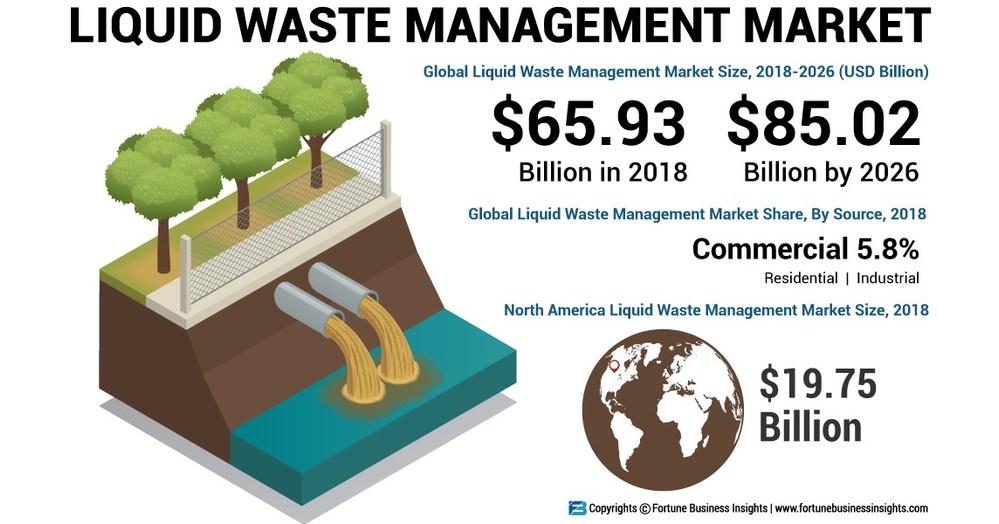All About Reclaim Waste
All About Reclaim Waste
Blog Article
The Greatest Guide To Reclaim Waste
Table of ContentsReclaim Waste Things To Know Before You BuyReclaim Waste Things To Know Before You BuyNot known Facts About Reclaim WasteOur Reclaim Waste Statements4 Easy Facts About Reclaim Waste Described
Discover the kinds, occurrences, and types of liquid waste. Domestic sewage waste refers to the waste and items from a property sewage-disposal tank. This sort of waste is developed by human beings in houses, schools, and various other structures. This only consists of sewage-disposal tanks that have a drainpipe field. The appropriate administration and disposal of domestic sewer waste need liquid waste to be moved to a sewer therapy plant where the proper methods and tools are related to purify and get rid of waste.
Commercial waste usually consists of possible hazards, such as combustible materials or a mix of liquid and solid waste items, and requires a much more advanced and comprehensive disposal process. The disposal of business waste commonly entails the filtering of waste before transport to make sure safe and proper disposal. Industrial waste is developed from results and runoff of industrial procedures and manufacturing.
This type of waste can not utilize the very same sewer monitoring transport or procedures as septic or business liquids. The industrial waste administration procedure needs the inspection and testing of fluid waste before it goes through the disposal procedure (industrial wastewater treatment). Drainage waste is the liquid waste that originates from drainage and excess stormwater in extremely booming locations or cities
Runoff waste can create contamination and flooding if not taken care of properly. Discover more regarding sewer cleaning and waste monitoring. Making certain correct waste management can prevent calamities and reduce ecological harm. Both individuals in domestic setups and professionals in commercial or production industries can benefit from comprehending the procedures and policies of fluid waste administration.
Some Known Details About Reclaim Waste
Get in touch with PROS Providers today to find out regarding our waste administration and disposal solutions and the appropriate methods to care for the liquid waste you create.
(https://share.evernote.com/note/7e2c20e2-4e08-1523-1aa2-d06cf7e27761)Do you understand what occurs to your water when you end, flush the toilet or drain pipes the cleaning machine? No? Well, it's worth understanding. This so-called 'wastewater' is not just an important resource but, after treatment, will certainly be released to our land, waterways or the ocean. Utilized water from toilets, showers, baths, cooking area sinks, laundries and commercial processes is referred to as wastewater.

water made use of to cool down machinery or tidy plant and equipment). Stormwater, a kind of wastewater, is runoff that flows from agricultural and urban areas such as roof coverings, parks, gardens, roads, courses and seamless gutters into stormwater drains pipes, after rainfall. Stormwater flows without treatment straight to regional creeks or rivers, ultimately reaching the sea.
Our Reclaim Waste Ideas
In Queensland, many wastewater is dealt with at sewer therapy plants. Wastewater is moved from domestic or industrial websites via a system of sewers and pump stations, referred to as sewerage reticulation, to a sewer treatment plant. City governments develop, maintain and operate most sewer therapy plants. Operators are accredited under the Environmental Security Act 1994 to discharge treated wastewater at an appropriate environmental criterion right into waterways.
The Division of Natural Resources suggests city governments regarding managing, operating and maintaining sewage systems and therapy plants. In unsewered locations, regional federal governments might call for homeowners to set up specific or house sewage treatment systems to treat domestic wastewater from commodes, cooking areas, washrooms and washings. The Division of Natural Resources authorises using home systems when they are proven to be effective.
In some brand-new class, treatment of some stormwater to eliminate trash, sand and gravel has started making use of gross toxin catches. Wastewater therapy takes place in 4 stages: Gets rid of solid matter.
Wastewater after that moves into large tanks where solids clear up and are removed as sludge. Grease and residue are skimmed from the surface area. Uses small living organisms called micro-organisms to break down and remove continuing to be liquified wastes and fine particles. Micro-organisms and wastes are incorporated in the sludge. Removes nitrogen and phosphorus nutrients that can create algal blossoms in our rivers and threaten aquatic life.
The Buzz on Reclaim Waste
Nutrient elimination is not available in all sewer treatment plants since it calls for pricey specialist tools. It is becoming extra common in Queensland. Clear liquid effluent produced after treatment might still consist of disease-causing micro-organisms. If this effluent is launched right into rivers such as rivers or the sea, the micro-organisms will at some point pass away out.

This generally Check This Out means wastewater has to be treated or pollutants removed before it can be discharged to rivers. Many wastewater flows right into the sewage system. Under the Act, city governments provide approvals and permits for environmentally appropriate activities (Periods) entailing wastewater releases that could have a neighborhood impact. The division provides approvals and permits to Periods including wastewater launches that could have a local or statewide effect.
Some Known Incorrect Statements About Reclaim Waste
Or else, samples are taken for laboratory evaluation. Commonly many examinations are needed to develop the degrees of each of the various contaminants such as oils, heavy steels and chemicals in water. Monitoring gives valid info concerning water quality and can confirm that permit conditions are being satisfied. The details gotten with tracking provides the basis for making water high quality decisions.
Report this page